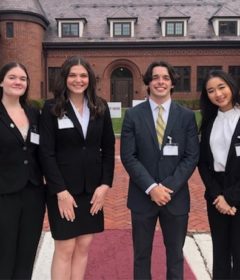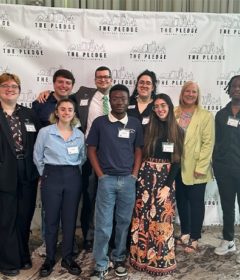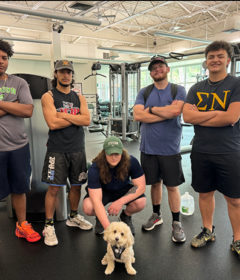Leaders and educators gather to tackle issues at Poverty & Homelessness Conference
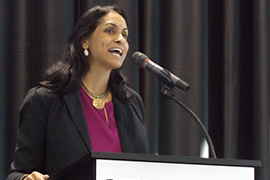
Caroline Skinner, an administrative assistant in Stetson’s School of Business Administration, was 12 years old when she, her mom and her three siblings got in their Ford LTD and moved from Danbury, Connecticut, to Florida.
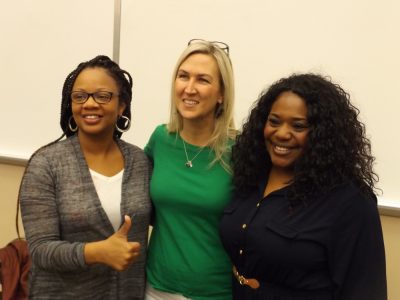
“When we got here, that car was our home,” Skinner said during her presentation Friday, March 9, at the third annual Poverty & Homelessness Conference, a collaboration between Stetson, Volusia County Schools and Volusia United Educators.
“My mom had no place ready for her, no job and no place to live,” Skinner said. “I can tell you in a car with four kids, poverty is very loud and chaotic.”
Skinner was one of 456 area school teachers, education administrators and professionals, and service organization workers who attended the day-long conference on the Stetson campus, said founder and director Rajni Shankar-Brown, Ph.D., a Stetson associate professor and the Jessie Ball duPont Chair of Social Justice Education.
The conference’s theme was “Dismantling Oppression & Poverty: Building Inclusive Learning Spaces.” Attendees participated in 18 workshops and presentations such as “Brains Can Change! Overcoming the Effects of Poverty and Supporting Student Learning,” “Tools and Techniques with a Twist: Meeting Low-Income, English Leaners’ Needs,” “The Art of Creating Safe, Challenging and Responsive Learning Spaces Through Theatre,” and Skinner’s program, which was titled “Don’t Judge a Book by Its Cover.”
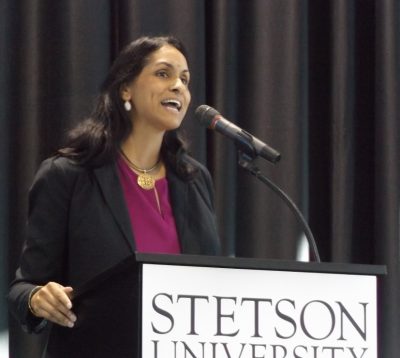
“The U.S. Department of Education reports that child and family homelessness has doubled in the past decade and continues to rise,” Shankar-Brown said in her opening address. “I have the honor of serving on the board of the National Coalition for the Homeless, and in sifting through the data, unfortunately the news is grim, distressing and depressing. At the national, state and local levels, we each have to do more.
“In two weeks I’ll be on Capitol Hill to talk about policy changes, but I’m also going to tell our members of Congress that as we are having resources slashed left and right, our numbers are rising. This is not OK.”
Volusia County Schools Superintendent James T. Russell delivered sobering statistics at the conference’s opening session: In February 2017, 65 percent of Volusia County students were participating in the free and reduced lunch program. In February of this year, that figure rose to 70 percent.
“That means 3,000 students stepped into poverty in one year,” Russell said. “A decade ago, we had two schools with 80 percent of students on free and reduced lunch, and it was shocking to us. Now we’re moving close to 20 percent. It is absolutely staggering.”
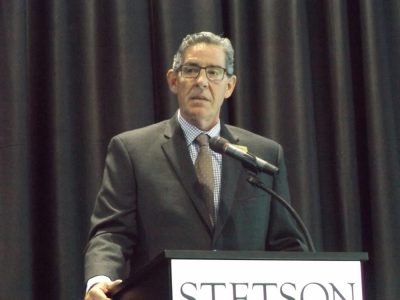
Russell also made those statistics more personal. “We do know there are students in our district who live in cars,” he said. “I know of at least two cases of students who live in tents in the woods. We have couch surfers — unaccompanied youth who spend a week with an aunt, cousin or friends, and they sleep on couch to couch to couch.”
Shankar-Brown struck a note of hope by noting that “Homelessness is very personal for me.” She then related her parents’ experience: Her father emigrated to the U.S. from India with a full scholarship to attend Howard University in Washington, D.C., but room and board were not covered. When Shankar-Brown’s mother joined him, “they were homeless – they lived in cardboard boxes, under bridges, anywhere they could find a safe place to stay.” By the time Shankar-Brown and her siblings were born, their parents had established a stable household.
“This conference is a collaboration, with so many individuals coming together for social change,” she said. “Even as we talk about the distressing, depressing nature of poverty and homelessness, there is hope in the face of injustice. Nelson Mandela said, ‘Like slavery and apartheid, poverty is not natural. It is manmade and it can be overcome and eradicated by the action of humans.’”
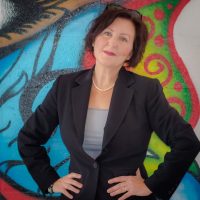
Keynote speaker Dana Godek, Ph.D., who serves as the Director of Federal and State Programs for the School District of Palm Beach County, the 11th largest district in the nation, related her experiences as a homeless teen in Dallas after her parents died.
Godek cited “the top five things I learned as a homeless teenager.” Her list included “fast food restaurants that have all-you-can-eat salad bars— it takes a few days before they realize you’re using the same plate, refilling it over and over again.” She also said, “If you have money, stuff it in your bra — other homeless people can be ruthless.”
And, she added with a faux lilt: “Make sure you’re always the life of the party. No one wants the depressed kid at their house.”
Various practical matters surfaced in the workshops and addresses throughout the conference: Homeless shelters frequently lack feminine products. People being evicted from their homes seldom have any luggage or containers to pack whatever belongings they do have. Numerous teachers noted that efforts to supply food to poverty-stricken students failed because the students were too embarrassed to accept it.
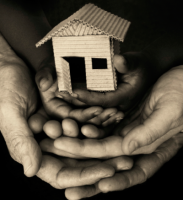
Shankar-Brown also noted that the conference featured an “intersectional justice component” and that she “designed the conference on an equity framework from locally sourced, vegetarian and vegan meals to eco-friendly tote bags.”
Godek and Skinner, who will earn her MBA this spring, each detailed how they escaped poverty and homelessness, a process that for them variously included caring teachers, social service workers, role models and others.
“Nobody does it alone,” Skinner said.
“And changing this heartbreaking reality and advancing justice requires intersectional education, collective action, persistence and love,” Shankar-Brown said. “All of which the Poverty and Homelessness Conference reflects and actively promotes.”
— Rick de Yampert

